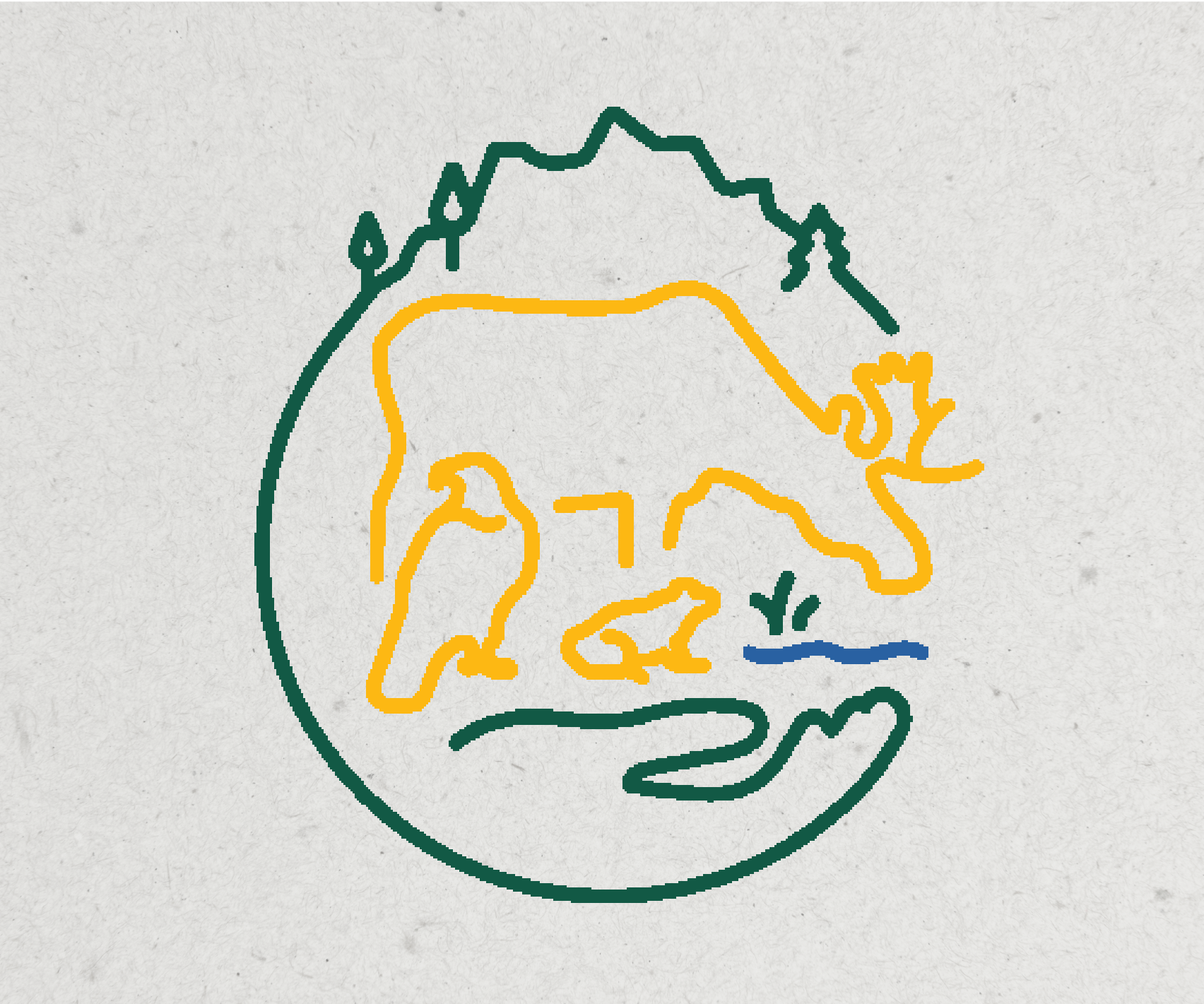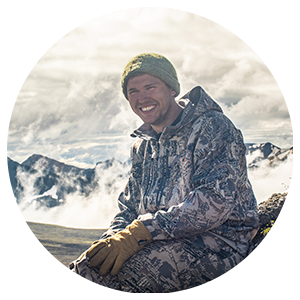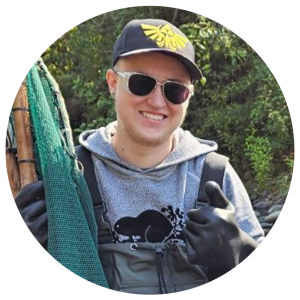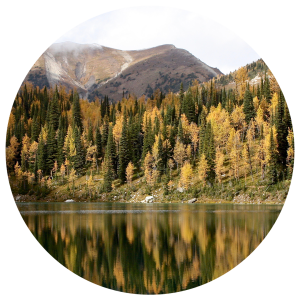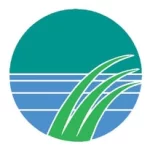HCTF in partnership with the First Nations-B.C. Wildlife & Habitat Conservation Forum and the Province of British Columbia’s Together for Wildlife Strategy (T4W) are proud to share more information about the 2025 Together for Wildlife academic scholarship recipients;
The Together for Wildlife scholarship is awarded annually to 10 masters and Ph.D. candidates conducting research that will have a positive impact on stewardship, management, policy, or decision-making of wildlife in BC. This scholarship aims to support reconciliation and collaboration, diversity of perspectives, and building community among Indigenous communities and rural areas of BC.
2025 Recipients
Mitchell Brunet
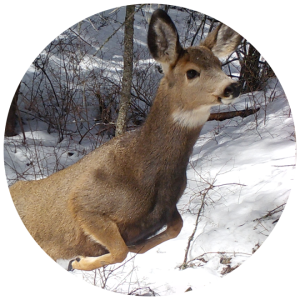
Mitchell Brunet is a Doctorate student at the University of British Columbia. They are using a suite of GPS-collared mule deer, white-tailed deer, and cougars, as well as vegetation sampling, and camera trap networks to identify the cause of mule deer limitation. Identifying the cause of mule deer decline will ensure we implement management actions such as on-the-ground habitat improvements (e.g., prescribed burns, access mitigation, UWRs) and harvest regulations that make meaningful differences.
Melissa Butynski
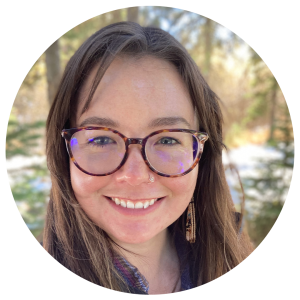
Melissa is a Doctorate candidate attending the University of British Columbia. Her research is examining two key issues. The first is organizing a wildlife crossing and corridors forum to bring together various stakeholder groups to align on management strategies, braiding together Traditional Knowledge and Western science. The second focus is using camera traps to determine factors that influence the use of wildlife crossings
Westin Creyke
Westin is a MSc student at the University of Northern BC. His research examines the impacts roads have on Stone’s sheep, to define the spatial and temporal extent of the road’s influence on stress in the sheep population.
Nathan Earley
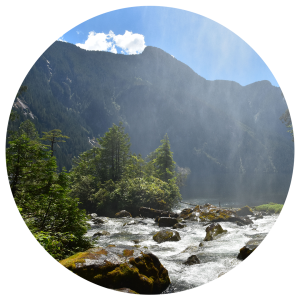
Nathan is a PhD student attending the University of Victoria. His study is examining how community science can be better used and integrated with more traditional biodiversity data to inform conservation and will identify the role that community science already plays in informing conservation prioritization.
Johanna Griggs
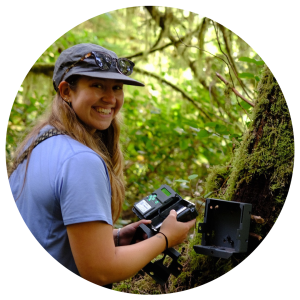
Johanna is a master’s student at the University of Victoria. Johanna is investigating the impacts of industrial logging in the Heiltsuk Territory. By using detection data from remote camera Johanna and Heiltsuk land managers seek to understand how industrial logging could be impacting spatiotemporal interactions between wolves and their prey. This work may minimize future impacts of logging on wildlife in the Heiltsuk Territory.
Sima Khanal
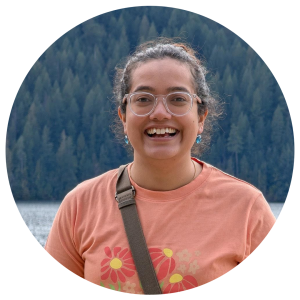
Sima is a PhD student studying at the University of British Columbia. Their work aims to explore ways in which we can minimize human-wildlife interactions, specifically between humans and bears in Provincial parks and recreational areas. By examining multiple simple intervention choices Sima hopes to make evidence based recommendations to BC Parks and conservation agencies to reduce the frequency of Human-Bear interactions.
Zoe Konanz

Zoe is a master’s student studying at the University of British Columbia. Her work is supporting the Yunesit’in Government’s goals to restore cultural burning as part of a broader vision for land healing. To do this Zoe is exploring two questions: how moose and mule deer forage responds to cultural burns and how habitat usage changes for wildlife following burning. This study aims to support Yunesit’in in their fire stewardship goals while contributing to broader ecological understanding.
Danny McNeil-Wilmott
Danny is a Doctorate student currently studying with the University of Northern British Columbia. Their work in partnership with Williams Lake First Nation, is examining how the reintroduction of cultural burning practices can help minimize the effects of historical changes have on the area. This project seeks to understand how fire stewardship can restore habitat networks and biodiversity, while also ensuring the T’exelcemc people are able to maintain culturally important practices.
Yaelle Sarid-Segal
Yaelle is a doctorate student at the University of Northern British Columbia. Their research is exploring the impacts that glyphosate-based herbicides on wildlife and ecosystems, specifically small mammals. To determine the potential impacts of Glyphosate-based herbicides on voles and deer mice physiology, gut microbiome, and population trends Yaelle will utilize fecal analysis. This will allow them to determine a basis for how the mammalian food web could be impacted by Glyphosate-based herbicides as voles and deer mice are critical seed dispensers and food sources.
Robyn Stack

Robyn is a master’s student currently studying with Thompson Rivers University. Her research is exploring the relationship building between Traditional Ecological Knowledge and Scientific Ecological Knowledge in the Nicola Watershed. Given the recent flooding and wildfire events in the area, a high amount of restoration work has been taking place in the area. This has opened the door to better integrate these two knowledge systems to create more effective, and inclusive, stewardship and restoration actions.
If you or someone you know may be interested in applying for the Together for Wildlife Scholarship, check out the following links:


